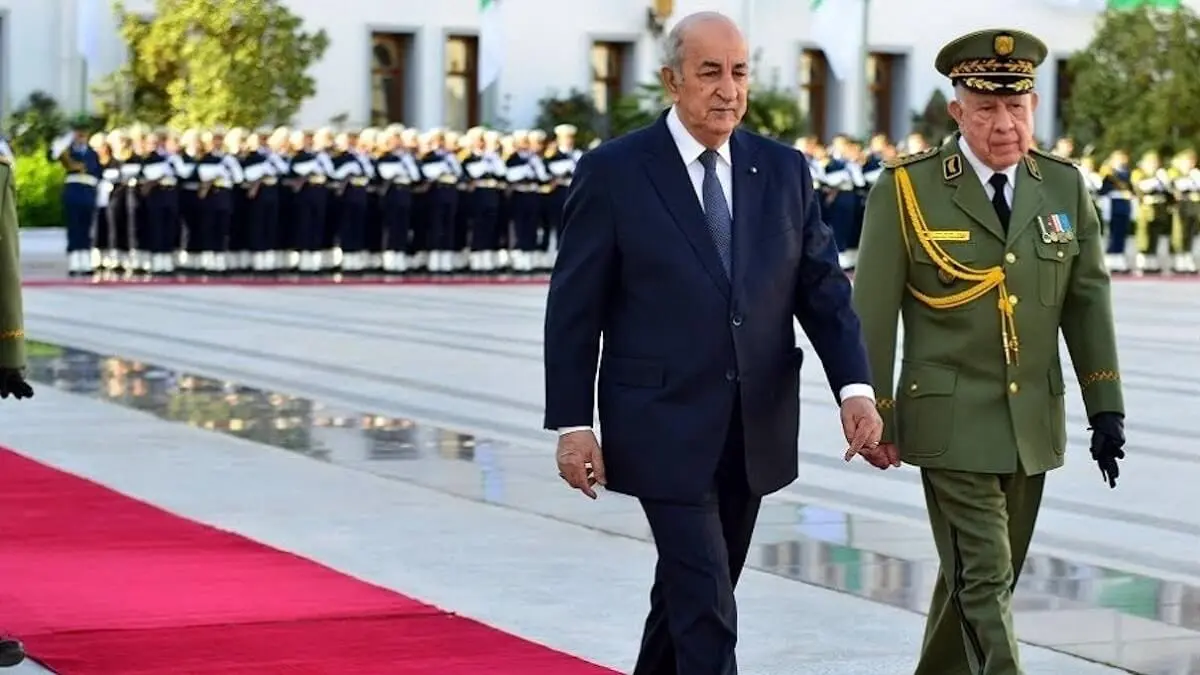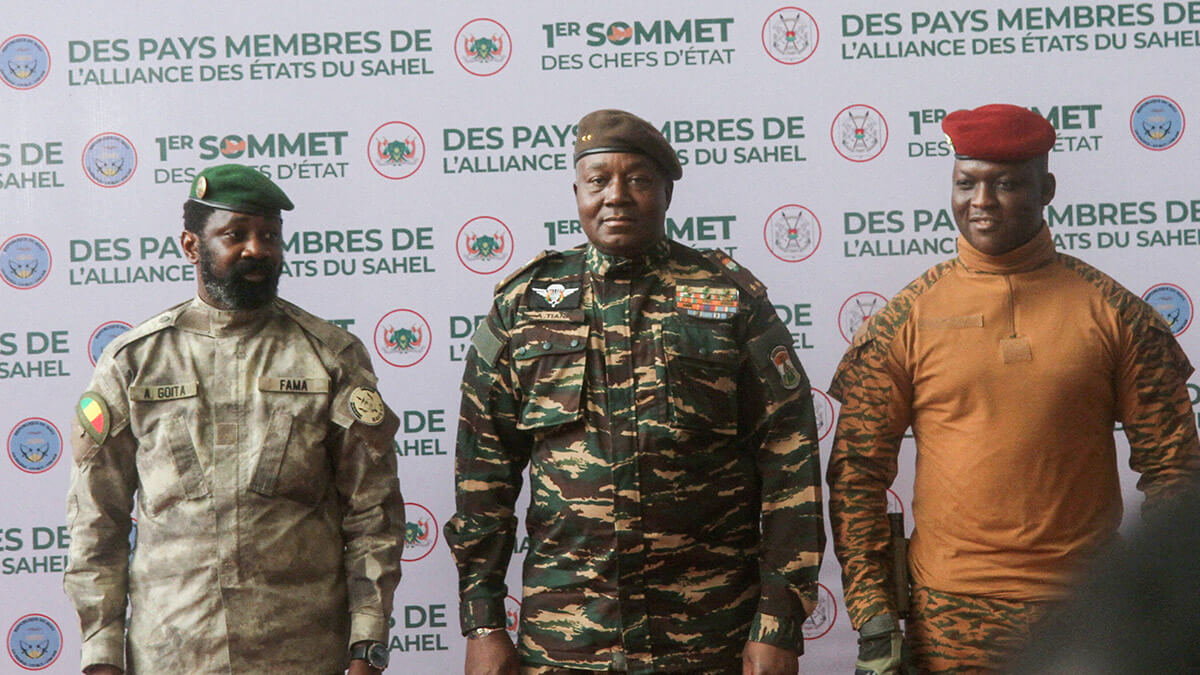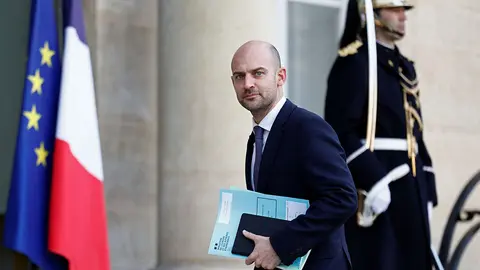Algeria closes its airspace with Mali and withdraws its ambassadors from Bamako and Niamey

The confrontation between Algeria and the countries of the Sahel Alliance continues: Mali, Burkina Faso and Niger.
If tension had grown in recent days after the Algerian army shot down a Malian drone, which led to the withdrawal of the ambassadors of Mali, Burkina Faso and Niger in Algiers, now the confrontation is intensifying due to the Algerian order to close its airspace with Mali and withdraw its ambassadors in Bamako, the Malian capital, and Niamey, the Nigerien capital.
Thus, the Algerian Ministry of Foreign Affairs and the Ministry of Defence issued official statements following the joint decision of the countries of the Sahel Alliance (Mali, Niger, Burkina Faso) to withdraw their ambassadors accredited in Algiers. These countries are protesting against what they consider to be a belligerent Algerian attitude that hinders the fight that these nations are waging against criminal, terrorist and separatist organisations in the already turbulent Sahel region.

The Algerian government decreed the closure of airspace, denouncing violations by Mali. A situation that has led to the cessation of flights to and from the Malian country.
In this way, the Ministry of Defence and the Ministry of Foreign Affairs of the Maghreb country show their opposition to the accusations of the countries of the recently created Sahel Alliance, which called their three ambassadors in Algiers for consultations on Sunday in response to what they describe as an ‘act of aggression’ against Mali, following the destruction by the Algerian army, on Malian territory, of the military drone that was on a mission in the north of the country on 1 April.
These Sahel countries accuse Algiers of having shot down the Malian drone with the sole aim of protecting the terrorists it harbours on its borders with Mali. The Algerian government, for its part, ended up accusing Mali of having violated its airspace three times since last summer. However, on Sunday 6 April, the Malian authorities presented precise coordinates and data demonstrating that their drone, shot down by the Algerian army a week ago, was indeed in Malian territory, adding that the Algerian authorities had maintained a ‘guilty silence’ after a request for explanations about this flagrant aggression, as reported by various African regional media such as Le 360.
Bamako considered that this ‘act of aggression’ is part of the Algerian regime's clear support for terrorism. The incident has been described by the Sahelian bloc as a violation of international law and an example of the Algerian Executive's alleged support for terrorism.

But, according to the official communiqué from the Algerian Ministry of Foreign Affairs, the accusations of terrorism against Algeria ‘only very imperfectly conceal the search for ways out and diversions in the face of the manifest failure of what is still a coup plot that has trapped Mali in a spiral of insecurity, instability, desolation and misery’.
According to various reports, the Algerian Ministry of Defence decided to break its long silence in the face of the existing evidence, using as an excuse radar detection failures with respect to the shooting down of the drone, something that should have been alleged at the time and not several days later.
For its part, the Ministry of Foreign Affairs added, in a second communiqué, that the Algerian Executive rejects what are considered to be ‘serious accusations’ from the Sahel countries, for which it ‘regrets’ having applied the principle of reciprocity by recalling its ambassadors in Bamako and Niamey and postponing the introduction of the recently appointed diplomatic representative in Ouagadougou (Burkina Faso).

Various analysts see in Algeria's attitude the intention to divide this Sahel Alliance, created by Mali, Burkina Faso and Niger. Countries in which a military junta came to power after several coups d'état in recent years. This multilateral organisation is now opposed by the Economic Community of West African States (ECOWAS), which these three countries left, causing a regional commotion. In opposition to this Sahel Alliance, the Algerian regime claims to ‘regret the thoughtless alignment of Niger and Burkina Faso with Mali's fallacious theses’, which can be interpreted as an attempt to divide the organisation made up of these Sahelian nations.
Thus, regional confrontation is growing after Algeria had meddled in Malian internal affairs in the past, especially between the central government and the Tuareg rebels in the north. However, following the coups d'état in Mali (2020 and 2021), bilateral relations have deteriorated markedly. Algeria has openly criticised Bamako's use of foreign mercenaries and sophisticated weaponry, including drones, to quell the insurgency in the north of the country.
This escalation of tension between Algeria and Sahel countries comes on top of other confrontations between Algeria and other nations such as neighbouring Morocco, with which it broke off diplomatic relations in August 2021 after denouncing ’ hostile acts’ on the part of the Moroccan kingdom and due to significant political disagreements such as those related to the sovereignty of Western Sahara, all this despite the outstretched hand on several occasions by the King of Morocco, Mohammed VI, to redirect the situation between two nations that in the past cooperated with each other. Or as with other countries such as Spain and France, with which the Algerian state has had a clash of opinions after the explicit Spanish-French support for the Autonomy Plan proposed by Morocco for Western Sahara, which Algeria rejects, defending the Polisario Front's stance on the holding of an independence referendum for the Saharawi population.










